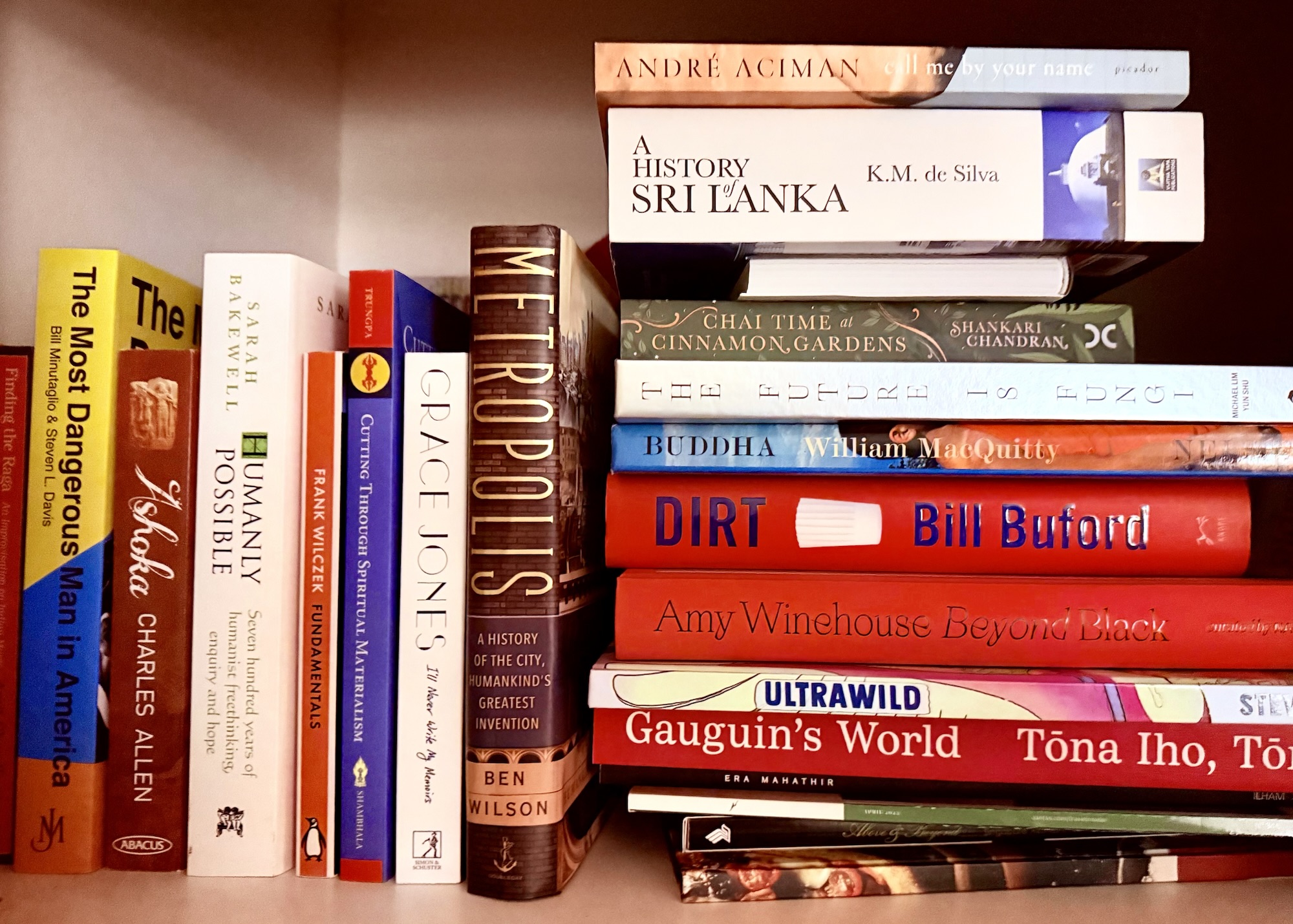A recent piece in The Atlantic shocked me: even Ivy League students – those elite overachievers – are struggling to read deeply. Not scrolling. Not skimming. But focussing and engaging with a book. And it’s not just them. Many of us haven’t read a single book in the last year. Not one.
When was the last time you got lost in a book, taken on a journey so palpable you could smell, hear, touch and see things in a way that made you marvel at how the author did it? Why does it even matter in an age of sugar-hit content that can be digested in seconds? When we stop reading, we don’t just lower our ability to metabolise knowledge and emotion, but also the ability to focus, think critically, and imagine possibilities beyond the here and now. It’s like letting your mind’s gym membership lapse, with your imagination muscles soon withering away. The solution is sitting right there—on the shelf, on your phone, or in your headphones.
I wasn’t always a devout reader. I read as a kid—school assignments and few fiction series (if you grew up in the 90s like I did, Animorphs and Goosebumps may have been a part of your repertoire too). I enjoyed reading, but I wasn’t even close to being a voracious bookworm. By my twenties, though, something clicked. Reading became more than a way to pass time; it became a critical tool for growth.
At first, I thought just finishing books was enough. If I read it, I’d remember it, right? I sadly am not one of the lucky few with a photographic memory, so whatever titles I read passed right through me. Then, I moved onto highlighting like my life depended on it. Pages would glow neon yellow, but when I tried to recall the big idea? Blank.
A few years ago came Readwise, my lifesaver. It’s an app that takes my digital highlights and serves them up in daily snippets, helping me reflect and actually remember what I’ve read. From there, I leveled up my game. Now I jot down scrappy notes—not polished essays, but ideas, connections, and questions. Reading stopped being a one-way street; it became a conversation. Now, books aren’t just something I consume. They’re part of how I think, create, and grow.
Since building up my capacity to read (read: no more excuses), I aim to read 25 books, up from an initial target of 10-15 in my early years of intentional reading. It’s a target that pushes me but does not overwhelm me. Some years I hit it; some years I don’t. The real purpose of the reading target? Maintaining the habit.
I read in every format. Nothing beats the feel (and smell) of a paperback. But my Kindle is a godsend when I’m on the go. Audible is perfect for walks, chores, and commutes. Where do I find books? Podcasts, curated reading lists, independent bookstores (Readings in Melbourne being my favourite), and, more often than not, the occasional Kindle deal. The key is to pick books I’m genuinely curious about—not ones I feel obligated to read.
Thankfully, reading may be having a moment through new marketing channels. Trends like TikTok’s #BookTok have turned books into cultural phenomena. People are geeking out over novels and sharing recommendations in ways that feel fresh and fun. It’s messy, sure—part hype, part substance—but it’s proof that literature still has potential to captivate minds.
Make 2025 the year we rediscover the joy of reading. And I mean joy. Not obligation. Not FOMO. Pick up a book you actually want to read. Maybe it’s a thriller that keeps you up all night. Maybe it’s a classic that is a mental marathon to digest. Maybe it’s a coffee table book about a place you’ve dreamed of visiting or a trashy celebrity memoir. It doesn’t matter. The beauty of reading is its infinite possibility to inspire and move. It sharpens your mind, deepens your empathy, and gives you a way to escape or explore.
So, go ahead. Dust off that book you’ve been meaning to read, or download something new. You might just fall in love.
P.S. I’ll share my 2024 reading list soon. But in the meantime, here’s what I read last year—what’s on your shelf?
A few helpful links:
- If Anthony Bourdain made a documentary about reading, this would be it.
- Polymath Tyler Cowen on reading in clusters, giving up books early if they don’t grab you.
- Sonke Ahrens (academic and author of ‘How to Take Smart Notes’) on reading actively with a notetaking medium on hand.
- How to use Readwise.
- How Cal Newport reads.

Leave a Reply